Kenya
Kiandu
2017 HarvestThe Kiandu Coffee Factory is part of the Mutheka Coffee Farmer’s Society, which is made up of around 6,000 active members. Each of these farmers grows 160 or so coffee trees, and most farms grow other crops such as maize, beans, and sweet potato.
After picking, the ripe coffee cherry is brought to the factory by the farmers, before it is processed to remove the skin and pulp, before coffee undergoes a dry fermentation to break down the mucilage sticking to the parchment, staying in the fermentation tanks for eighteen to 24 hours.
Then, coffee travels through washing channels to ensure all the pulp is removed and goes through one final overnight soak before being spread out on raised drying tables where it stays for 7-15 days, depending on climate, ambient temperature and the amount of coffee being processed.
From farmer to coop to factory
Kenya’s coffee production is made up of smallholder coffee farms, large estates and small estates. There are over 700,000 smallholders who make up about 55% of the Kenya’s production.
Smallholders are organized in to cooperative societies, which act as umbrella organisations for the factories (also known as wetmills) where these producers deliver their coffee crops for processing.
There can be several factories in an area which farmers are free to choose to deliver their cherry. Due to the traditional auction system in Kenya, quality is rewarded with higher prices, with better factories attract more farmers by producing coffee that fetches the highest prices, which then delivery higher returns to the farmers.
A coffee calendar
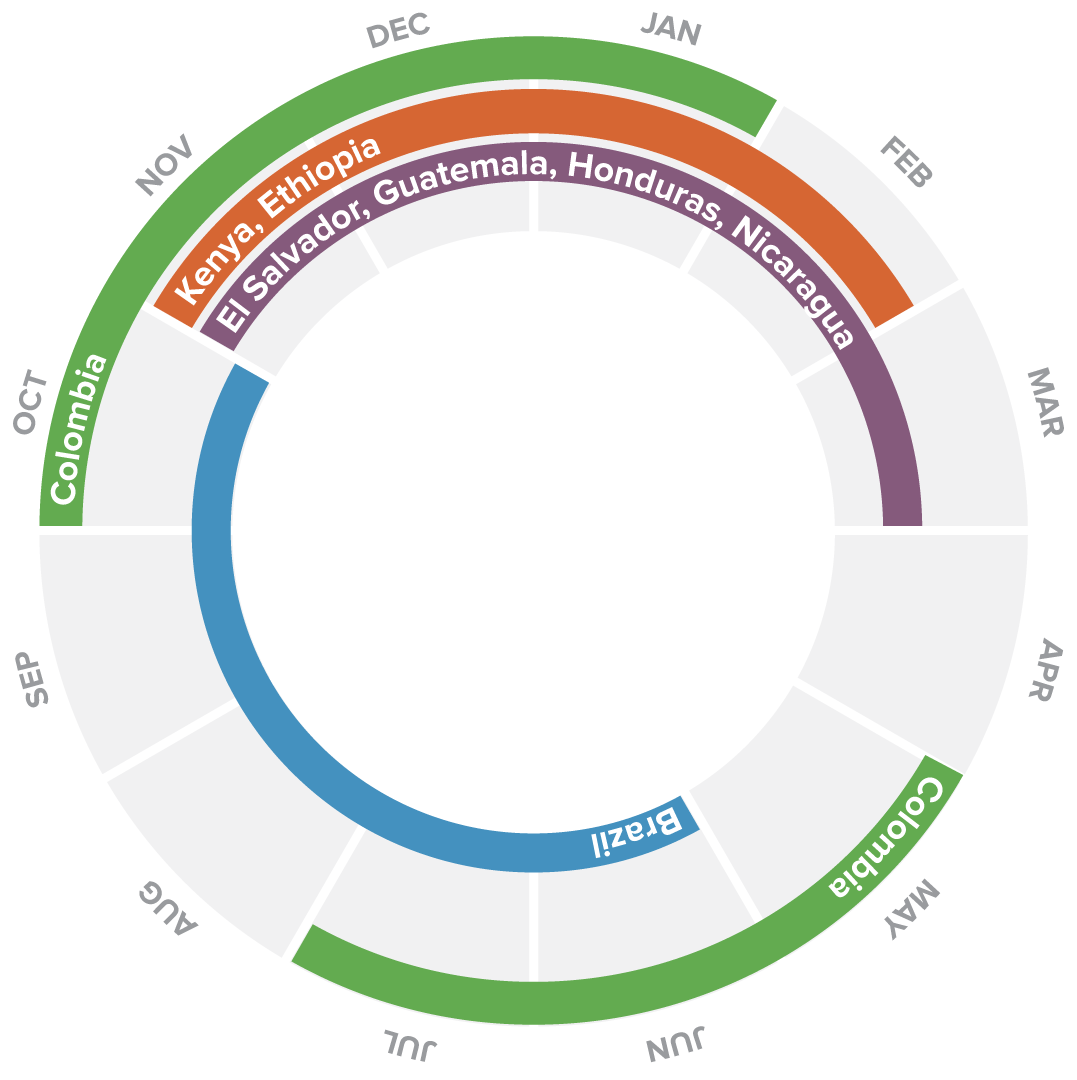
Like all farmed crops, coffee plants are affected by seasons and most countries have specific harvest periods where workers will travel through coffee regions picking coffee by hand. This seasonality means you’ll see different countries come and go from cafes through the year, and it’s also the reason coffee blends change through the year as fresh crops arrive.
Sourcing and ingredients
100% SL28, SL34, and Ruiru 11 coffee beans, provided by Cafe Imports and roasted by us on Gadigal land / Sydney.
Country grade: Unknown ?
Packaging
Bag: ABA Certified home compostable
Label: Recyclable
Valve (on bags larger than 250g): General waste
Coffee ordered online is shipped in a recyclable cardboard box
Brewing this coffee
We recommend brewing this coffee 15–49 days post-roast. If pre-ground, brew as soon as possible. Our advice on storing coffee.
1:3
dose:yield
ratio
To brew on espresso, we recommend using 20g of beans (dose) to get 60g of espresso out (yield), during 24-28 seconds.
1:16.7
beans:water
ratio
To brew in infusion/fed brewers (V60, Chemex) use a ratio of 1:16.7 ratio of beans:water.
1:14.3
beans:water
ratio
To brew in immersion brewers (plunger, AeroPress, Kalita, batch brewer) we recommend using a 1:14.3 ratio of beans:water
1:12
beans:water
ratio
To brew as cold brew we recommend using a 1:12 ratio of beans:water
Varietals
Ruiru 11 varietal
Released in 1985, Ruiru 11 is a disease resistant varietal developed in Kenya
SL28 varietal
SL28 was developed in 1931 by Scott Laboratories to suit the growing conditions in Kenya. The varietal is known for its exceptional cup quality
SL34 varietal
Developed by Scott Laboratories in Kenya, the SL34 varietal was designed to be high yielding with good cup quality.
The location
Coffee from Kenya
Alongside Ethiopia and Colombia, Kenya is one of the origins we get most excited about at the roastery. It exports some of the most vibrant, bright, and unique coffees in the world.
The Nyeri region of Kenya
Central region home to Mount Kenya, an extinct volcano that produces rich, red soil. Most commonly smallholder cooperatives. Coffee trees in this region produce two crops (the main harvest producing the higher quality lots)
Farm processes
Washed process
Machines are used to remove the flesh from the coffee cherry before being fermented in water, washed again, and finally sun dried. This process tends to result in more distinct, cleaner flavours.

Subscribe to a world of coffee
Discover a new single origin coffee from Sample every 1-5 weeks with no delivery fees.
No up-front purchase, and you can pause, cancel, or change plans at any time.
Available to order online this week:
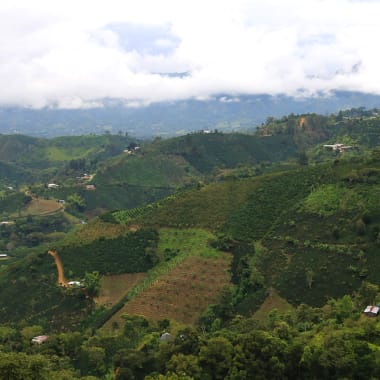
Colombia La Serrania Decaf
Flavours of honey and blackberry
Body Acidity
Washed + EA Natural Decaf Caturra, Castillo, V.Colombia
Roasted omni for filter and espresso
Colombia La Serrania Decaf online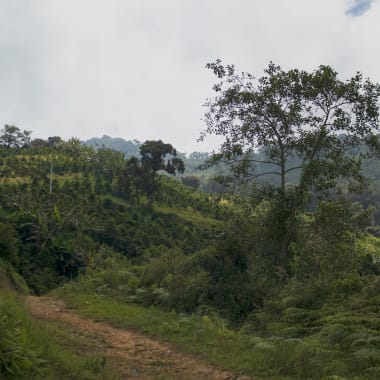
Colombia Canta Ranas
Flavours of yellow peach, orange juice, raspberry, rosehip
Body Acidity
Washed Chiroso
May 2024 harvest
Roasted omni for filter and espresso
Colombia Canta Ranas online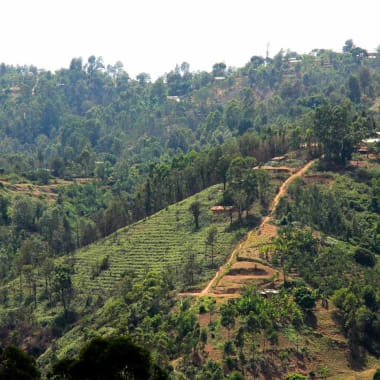
Kenya Gathaithi
Flavours of burnt toffee, orange, cola
Body Acidity
Washed SL-28, SL-34, Ruiru 11, Batian
November 2023 harvest
Roasted omni for filter and espresso
Kenya Gathaithi online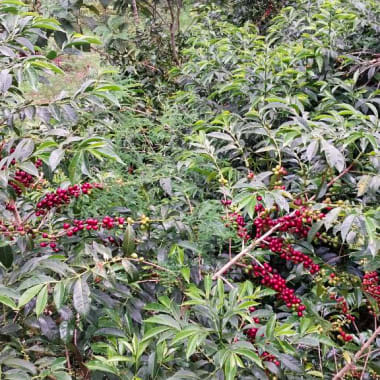
Ethiopia Bekele Gemeda
Flavours of orange marmalade, peach, apricot
Body Acidity
Washed Ethiopian Heirloom
January 2024 harvest
Roasted omni for filter and espresso
Ethiopia Bekele Gemeda online